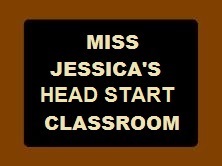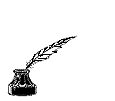|
  

WELCOME TO OUR ROOM!
WELCOME
TO OUR CLASS
 
|
This is the door and hallway
to our classroom. Throughout the year we
change the look of the hallway to display
the students' works of art. We are excited
to welcome you all to our classroom,
Collins1!
|
DAILY SCHEDULE BOARD

|
| Schedules and routines are
very important for our young learners
(and teachers too). Routines help
students feel safe and secure because
they know what is coming next
and
what is expected
of them. Less behavior problems occur
when a schedule is consistently followed every day. Students
learn the sequence of a day and
can begin to predict and
anticipate what will come next.
Research tells us young learners need visual
schedules and consistent
routines.
|
JELLY AND JELLO , OUR CLASS
PETS
 
|
Our pet jellyfish, Jelly and
Jello help us to calm down during rest
times and when doing our breathing
exercises.
|
OUR
GREAT WORKS BOARD

|
This is our Great
Works board that we will use to display
some of ur students' work in the
classroom. When students see their work
in the displayed in the
classroom it gives them
a sense of pride and accomplishment that
will follow them into other aspects of the
classroom.
|

|
| During small
group learning activities the children will be
working at these tables. This is also where we
will have morning breakfast, lunch, and
afternoon snack. Our restroom is the open door
down the hall on the right. |
CIRCLE
TIME CARPET

|
| The circle time carpet is our
main meeting spot. Itís where we do our
morning work, sing our morning songs, and have
our mini-lessons. This area
also includes our calendar, daily schedule
chart, job chart, and weather of the day. |
|
CENTERS
Most
of the studentsí time is spent working on
centers. The teachers set up the centers
with learning goals in mind. Some
centers change daily, some are weekly, and
some stay the same for most of the year.
At this time students are free to choose their
centers and move around the room at their own
pace during center/free play time.
|
DRAMATIC/KITCHEN
PLAY CENTER
 |
LIBRARY
CENTER

|
|
Our dramatic play learning
center gives the children opportunities to
role play as adults in everyday situations
and a variety of careers. Dramatic play
encourages creativity, self-expression, and
knowledge of the community. A dramatic play
learning center can also help teach children
about other countries, cultures, and
customs.
|
Our library center is a
quiet area where the children can practice
reading and comprehension skills that
explore their interests in a variety of
areas and helps them learn
about the world around them. This center
helps foster skills in children that will
influence their overall success in school
and in life.
|
SAFE PLACE

|
SCIENCE
CENTER

|
| The goal of our safe place
is to provide students with a place in their
classroom that they can go when they are
angry, sad, frustrated, anxious, etc...
Our safe place has tools that help the
children identify their emotion and gain
control and composure. This is
just like any other center in our
room. Students may go on their
own, or the teacher may direct them. If
it is teacher directed, it is done in a very
non-threatening, safe manner. |
Our science center brings
the outdoors indoors and gives the children
opportunities to explore nature and science
concepts. The science center helps foster a
strong connection with and understanding of
the environment in the children which can be
beneficial to everyone's future. |
ART
CENTER
 |
BLOCKS
CENTER

|
| Our art learning center serves as
a great creative outlet for our children to
help express their emotions and ideas.
Children can experience different textures and
use different materials as they create their
works of art An art learning center
improves fine motor skill development
and hand-eye coordination. |
The children can improve their
motor skills, practice problem solving, and
learn to work with their classmates while
playing in the block
learning center. Block play enables the
children to explore their creative side by
building unique structures and communities
with blocks, block people, and block animals.
|
MANIPULATIVE/PUZZLE
CENTER

|
DOLLHOUSE
CENTER

|
| The children can improve their
motor skills, practice problem solving, and
learn to work with their classmates while
playing in the manipulative/puzzle learning
center. Manipulatives and puzzles
are a fun educational toy that challenges
young minds, teaching and preparing them
early in life some very important life
skills.They provide many skills and mental
learning benefits and opportunities
including cognitive skills, problem solving,
motor development, hand and eye
coordination, cooperative play, and
self-confidence skills. |
This is our dollhouse
center. In this center we have a large
dollhouse, furniture, and small dolls. A
dollhouse center can help support oral
language development and social skills. |
SENSORY
TABLE

|
COMMUNICATION
FOLDERS

|
| This is our sensory table.
Children are given the freedom to do whatever
they want with the objects on the table. The
focus is on how children use the materials on
the table rather than whatís created with the
objects. This makes the learning process fun
as the children experiment with different
objects, colors, textures, weights, etc. |
These are our communication
folders. We will send these folders back and
forth everyday in your childís book bag.
Please check the folder everyday as we will
use them to send your childís homework,
monthly newsletters, and any other important
papers we receive throughout the week.
|
SEASONAL
COUNTING/MEASURING AREA

|
|
| This is our seasonal
counting/measuring area. Each month we count
objects related to that month and then measure
how tall we are by the number of those
objects. In September we start by counting the
fall leaves and see how may leaves tall we
are. |
|
|








